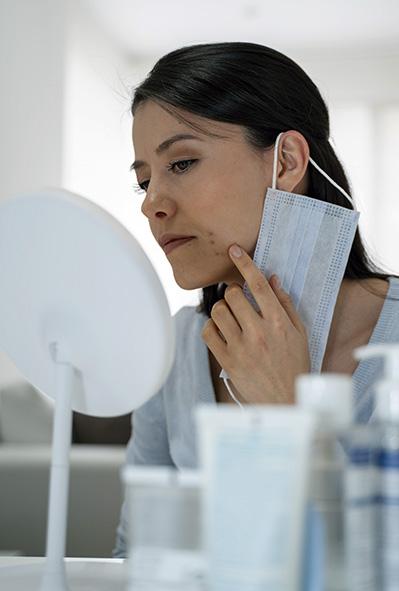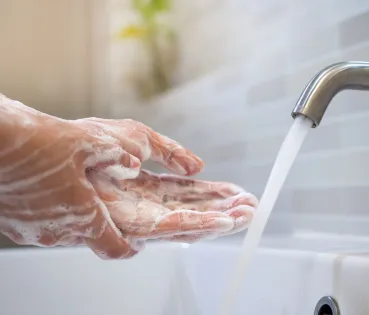
The effects of Covid-19 on the skin
The coronavirus pandemic has made changes in people’s dermis. Extended use of face maks has created a new pathology, “maskne” and the constant washing of hands has increased the cases of contact dermatitis. But other prior pathologies, such as acne, rosacea or seborrheic dermatitis have also been worsened. The experts consider that, amongst others, stress plays a key role – alongside fear, uncertainty or lockdowns, in the outbreak of all these dermatological diseases. Additionally, the healthcare crisis caused by Covid-19 is having an important impact on the detection of melanomas. A recent survey carried out on over 700 dermatologists all over the world warns that a fifth (21%) of melanomas were not diagnosed in 2020, with a third (33.6%) of people not attending doctor’s surgeries due to the pandemic. If these conclusions are added to the most recent incidence rates of melanoma from the World Health Organisation, the survey seems to indicate that, all over the world, over 60,000 melanomas have not been diagnosed and that this figure, in Spain, has reached 1,113 undetected cases due to coronavirus.
A link between Covid-19 and the skin, which has been under study from the very beginning. Therefore, in April 2020, a group of Spanish dermatologists, backed by the Spanish Academy of Dermatology and Venereology, carried out a study establishing five types of skin manifestations linked to the new virus. Months later, in the middle of the second wave, the doctors stopped seeing these skin symptoms in Covid patients. Furthermore, a recent research study led by the Pathological Anatomy Service of the Hospital Universitario 12 de Octubre and published in The American Journal of Surgical Pathology described the presence of viral particles of the infection by SARS-CoV-2 in the skin using electronic microscope, demonstrating that the skin lesions could be one of the first signs of Covid-19.
Currently, while we are immersed in the vaccination phase, dermatologists all over Spain are receiving consultations about rashes from people who have been vaccinated against SARS-CoV-2. For this reason, the AEDV has started up a study aimed at improving the descriptions of these reactions and evaluating whether they are related to the vaccination or not. The period of inclusion in the study will extend until June.
‘Maskne: how to prevent the most common lesions
The popular term “maskne” is used to describe acne lesions associated with the daily, prolonged use of face masks. Wearing one every day – as one of the main prevention steps against Covid-19, increases skin temperature and humidity, which, in turn, increases the secretion of sebum. This triggers the appearance of acne or worsens a pre-existing condition. Preventing acne caused by the use of facemasks, as well as other skin disorders, requires constant hygiene routines and treatments for maskne in accordance with each skin type. Cleansing the skin every day is essential to keep the acne under control and to prevent the appearance of spots and skin problems. Following hygiene, protection – using products that protect the hydrolipidic barrier of the skin, with oil-free products that moisturise it, are also vital.




